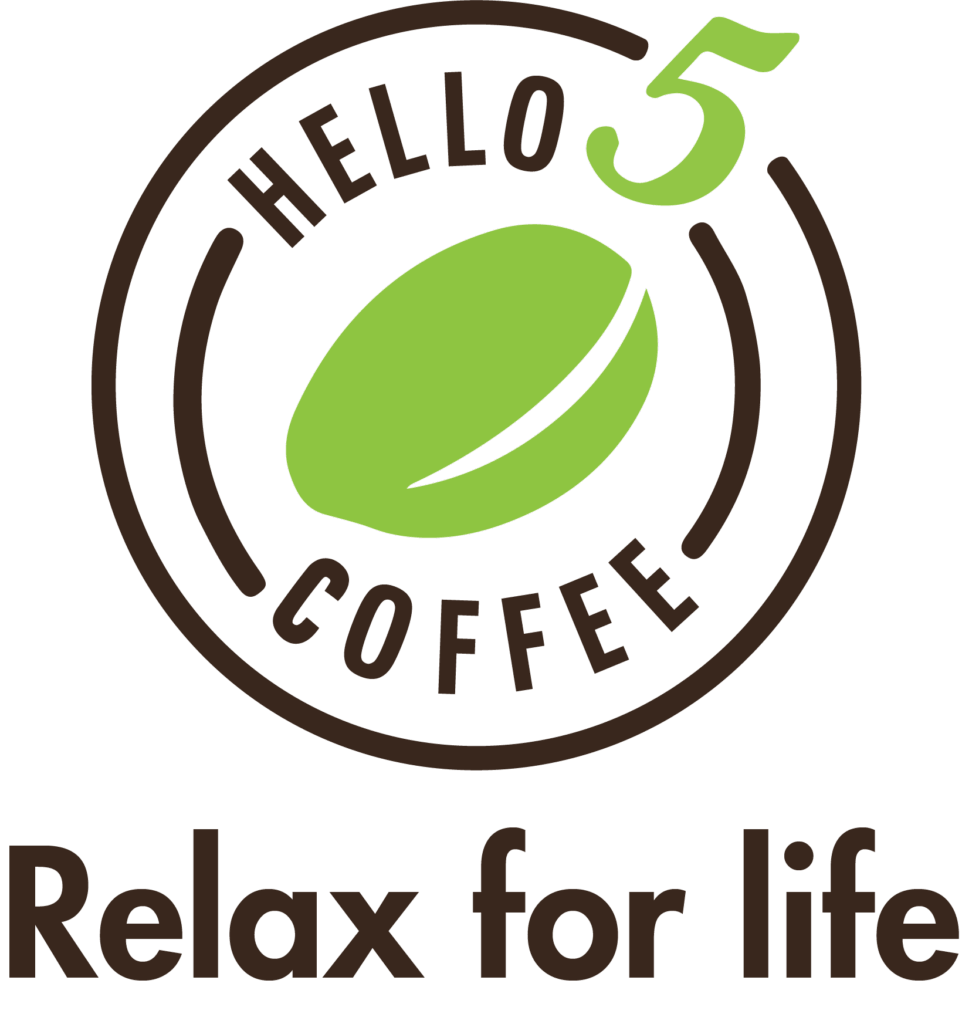Today, coffee certifications appear everywhere — in coffee shops, restaurants, and even supermarket shelves.
Consumers want to know where their coffee comes from and how it’s produced. Coffee, like any other agricultural product, has a complex supply chain that affects farmers, the environment, and our daily cup.
But what exactly do these sustainable coffee certifications mean, and should you really care whether your coffee carries one?
This guide will help you understand the most common coffee certifications and what they actually stand for.
1. Organic Coffee – Certified Natural from Farm to Cup
Among all sustainable coffee certifications, organic coffee is probably the most recognizable.
Organic coffee is grown and processed without synthetic fertilizers, pesticides, herbicides, or growth regulators. Instead, farmers rely on natural compost, shade trees, and biological pest control to maintain soil fertility and crop health.
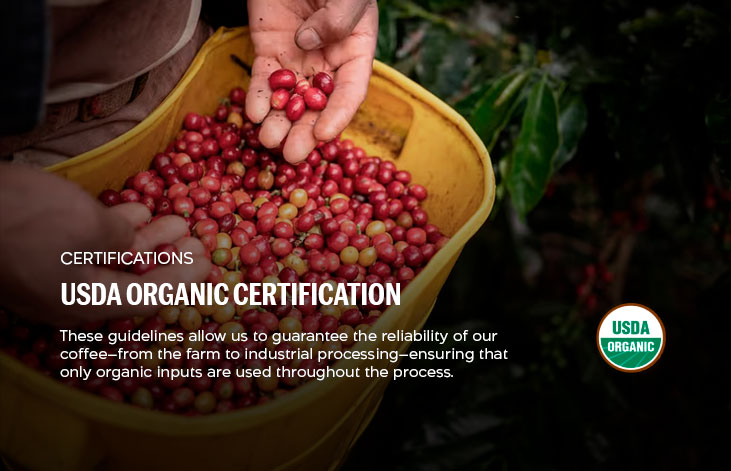
According to Dr. R. Naidu (India):
“Organic coffee is produced and processed using natural products and methods without synthetic fertilizers, pesticides, herbicides, or chemical growth regulators.”
The philosophy behind organic agriculture is simple: What you take from the soil must be returned to the soil.
Global standards for organic coffee:
- The U.S. Organic Foods Production Act (1990) and the EU Organic Regulation (1991) govern how organic coffee must be grown and certified.
- Only farms meeting these strict standards can display the “Organic” label.
Today, around 75% of the world’s organic coffee is produced in Latin America, with countries like Costa Rica, Mexico, and Peru leading the way. Indonesia and Ethiopia also produce significant volumes.
Because organic farming typically yields less coffee and involves higher certification costs, organic coffee commands a premium price.
Many consumers are willing to pay more, knowing their choice supports healthier ecosystems, farmers, and communities.
2. Fair Trade Coffee – Empowering Farmers Through Equal Exchange
Fair Trade coffee (also known as Fairtrade Certified Coffee) focuses on creating a fairer global coffee market.
The Fair Trade system ensures farmers receive a minimum guaranteed price, plus an additional Fair Trade premium that cooperatives reinvest in community development, healthcare, or education.
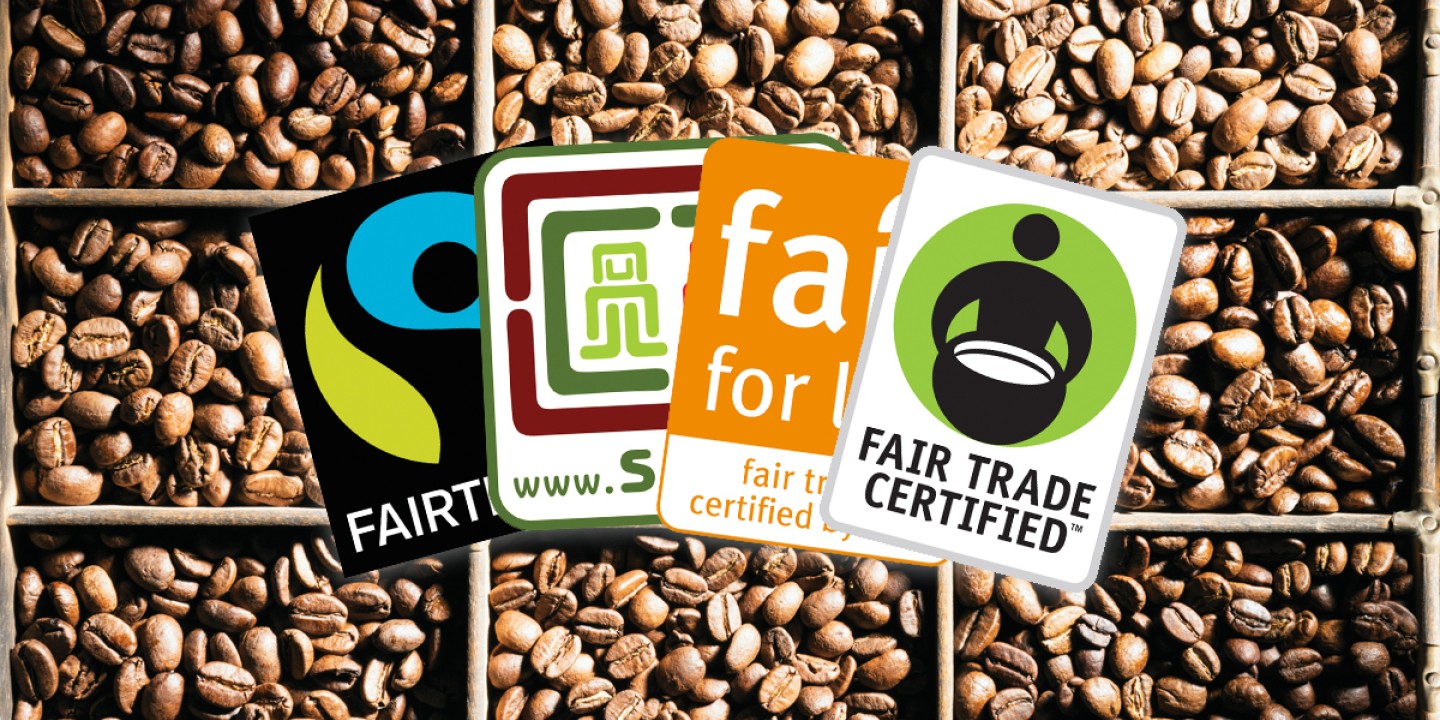
Launched in 1988 by the Dutch NGO Solidaridad, the Max Havelaar label was the first Fair Trade certification for coffee.
In 1997, these national initiatives united under the Fairtrade Labelling Organizations International (FLO) — now known as Fairtrade International.
Today, more than 240 cooperatives across 26 countries in Africa, Asia, and Latin America produce certified Fair Trade coffee.
Key benefits:
- Fair and stable prices for smallholder farmers
- Improved labor conditions and worker safety
- Support for sustainable agriculture and gender equality
By choosing Fair Trade coffee, consumers help farmers gain stability in volatile global markets while promoting ethical and sustainable trade.
3. Rainforest Alliance & UTZ – Protecting Forests and Farmers
The Rainforest Alliance (RFA) certification emerged in the early 1990s with the goal of integrating agricultural productivity, biodiversity conservation, and human development.
The first Rainforest Alliance Certified™ coffee farms were approved in 1996, and today the program operates in over 18 coffee-producing countries, including Vietnam.
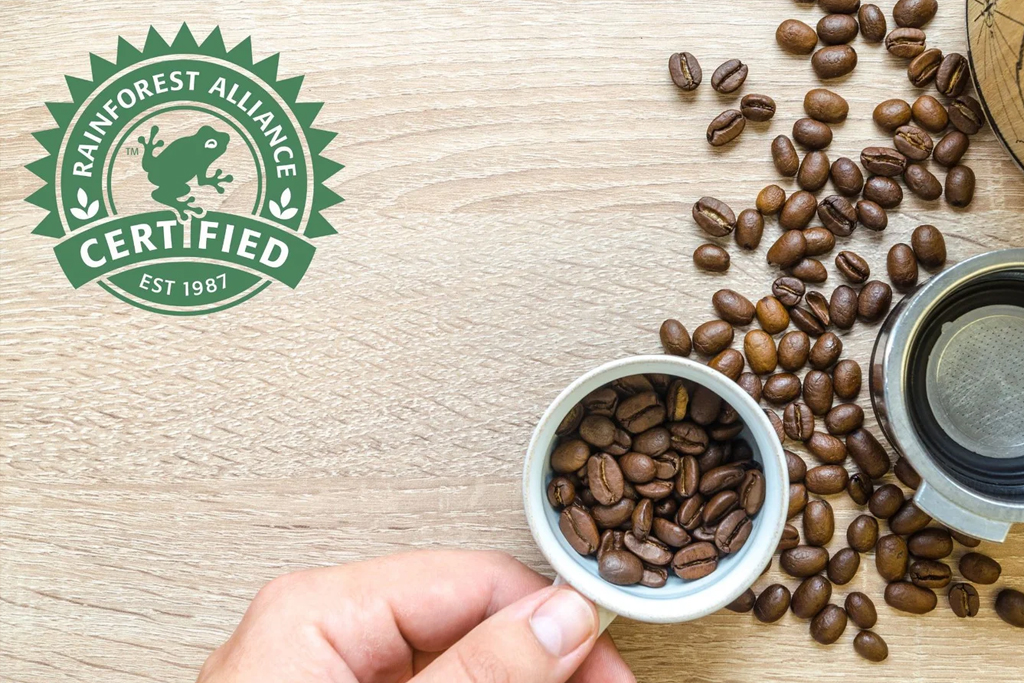
In 2018, Rainforest Alliance merged with UTZ Certified, another sustainability program founded in 2002 by Dutch retailer Ahold and Guatemalan coffee growers.
UTZ focused on responsible farming practices, environmental protection, and transparent supply chains.
Together, Rainforest Alliance and UTZ now represent one of the largest global sustainability certifications in the coffee industry.
What does the Rainforest Alliance seal mean?
- Farms meet rigorous social, economic, and environmental standards
- Workers receive training, safe working conditions, and fair wages
- Coffee is produced in ways that protect forests, rivers, and wildlife
When you see the green frog logo, it means your coffee supports environmental preservation and social responsibility.
4. 4C Coffee – The Common Code for the Coffee Community
The 4C Code of Conduct (Common Code for the Coffee Community) was established to improve sustainability in mainstream coffee production.
Unlike other certification schemes, 4C is not a certification but a verification system. It sets out 28 baseline criteria covering social, environmental, and economic aspects of coffee production.
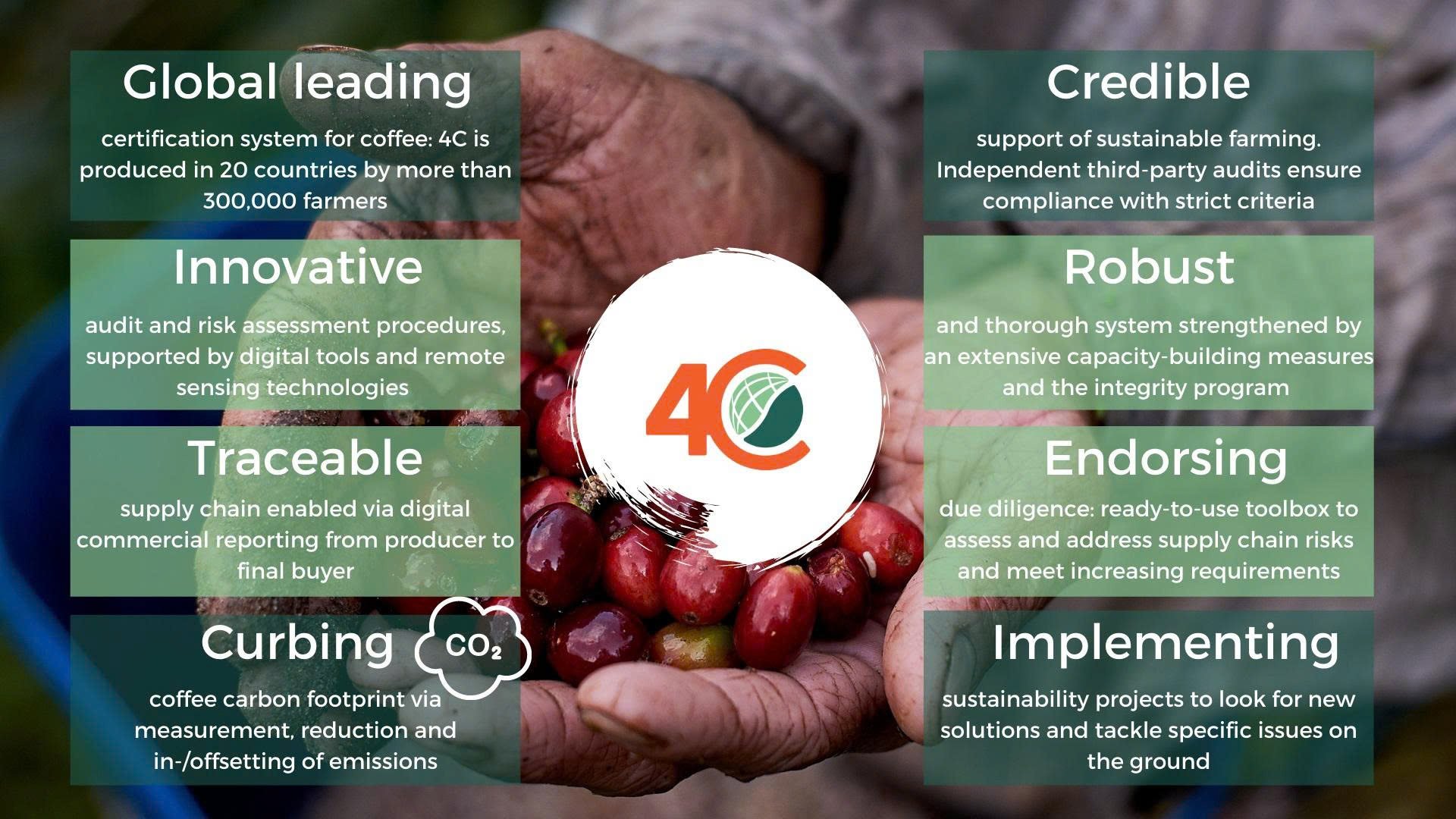
The 4C system:
- Encourages good agricultural practices and responsible farm management
- Promotes transparency and traceability along the supply chain
- Involves global companies like Nestlé, Kraft, Tchibo, and Sara Lee
In its first operational year (2007–2008), over 4.5 million 60-kg bags of coffee were verified under 4C standards in 21 countries.
4C verification helps producers move toward higher sustainability certifications like Rainforest Alliance or Fair Trade.
5. Shade-Grown Coffee – Coffee That Respects Nature
Shade-grown coffee is cultivated under a canopy of trees that provides natural shade, protecting coffee plants from direct sunlight and reducing soil erosion.
This slower-growing environment allows the beans to develop richer flavors, while supporting biodiversity and wildlife habitats.
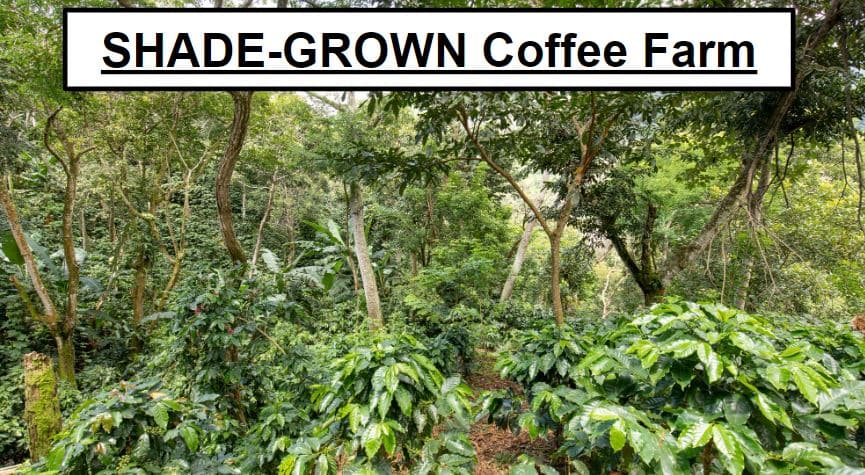
Shade-grown coffee is often organically farmed, avoiding synthetic fertilizers and chemicals.
By maintaining tree cover, this method supports migratory birds, prevents deforestation, and helps sustain local ecosystems.
According to WWF, the world lost 52% of its biodiversity by 2014 — but shade-grown coffee farms play a vital role in reversing this trend.
6. Bird Friendly Coffee – Certified by the Smithsonian
Bird Friendly® Coffee is a certification developed by the Smithsonian Migratory Bird Center (SMBC). It requires farms to grow organic coffee under shade trees, preserving habitats for migratory birds and other wildlife.
This certification predates many modern eco-labels and set the foundation for later sustainability programs.
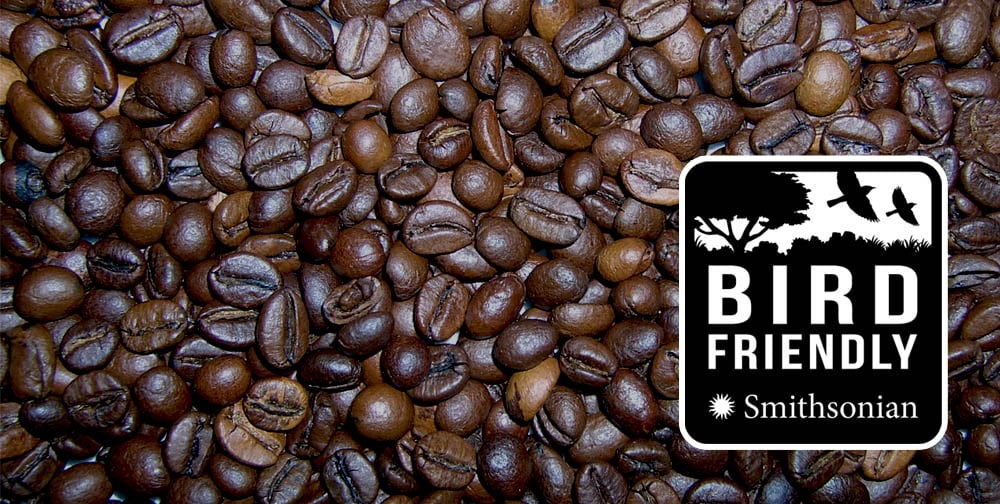
To earn the Bird Friendly label, farms must:
- Have at least 11 species of shade trees per hectare
- Maintain canopy height of at least 40 feet (12 meters)
- Ensure 40% foliage cover
- Hold organic certification as a prerequisite
Bird Friendly coffee supports healthy ecosystems and offers consumers a way to directly contribute to biodiversity conservation.
7. Why These Certifications Matter
Each sustainable coffee certification offers unique benefits:
- Organic coffee focuses on health and soil integrity.
- Fair Trade coffee ensures economic justice.
- Rainforest Alliance and UTZ protect ecosystems and empower farmers.
- 4C builds a foundation for responsible coffee production.
- Bird Friendly and Shade-Grown coffee safeguard biodiversity.
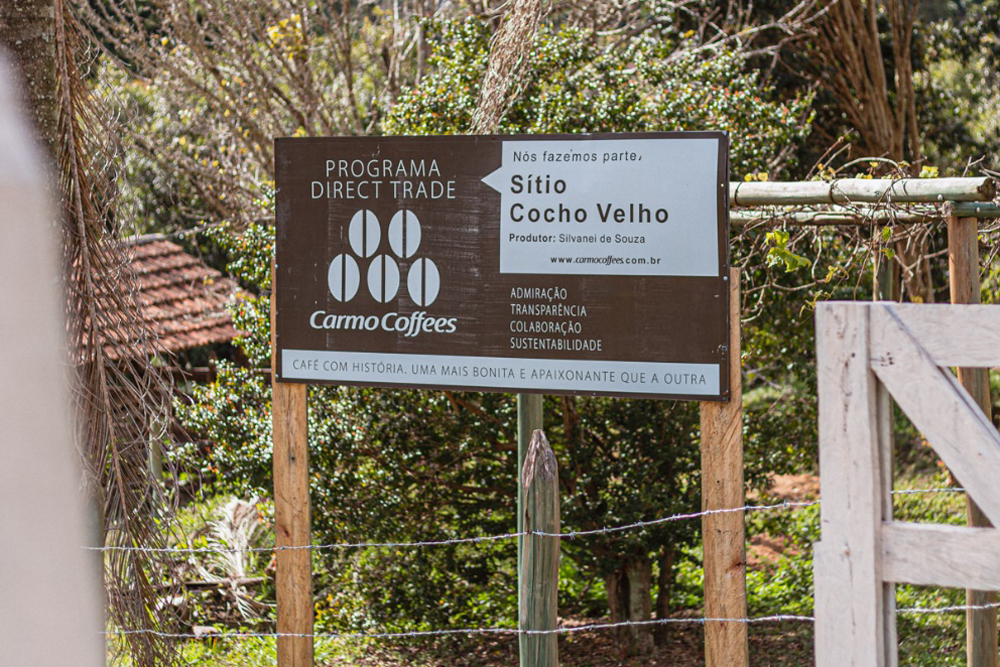
Together, these initiatives redefine how coffee is grown, traded, and consumed — ensuring that every cup contributes to a more ethical and sustainable coffee industry.
References:
- Vietnam Coffee Magazine, Issues 5 & 7 (2011)
- Espresso Coffee Guide – Sustainable Coffee Certifications
- HuffPost – Coffee: What Do Different Sustainable Coffee Certifications Mean?
Read more: What is Specialty Coffee? Everything You Need to Know
